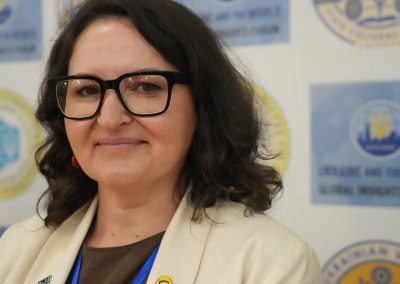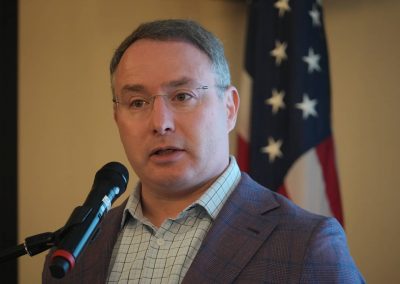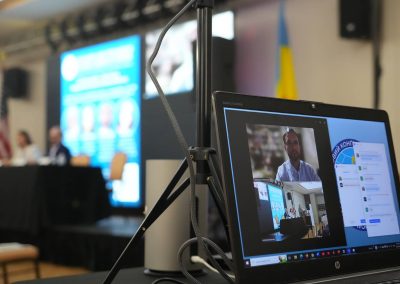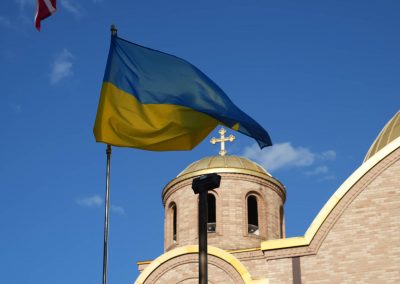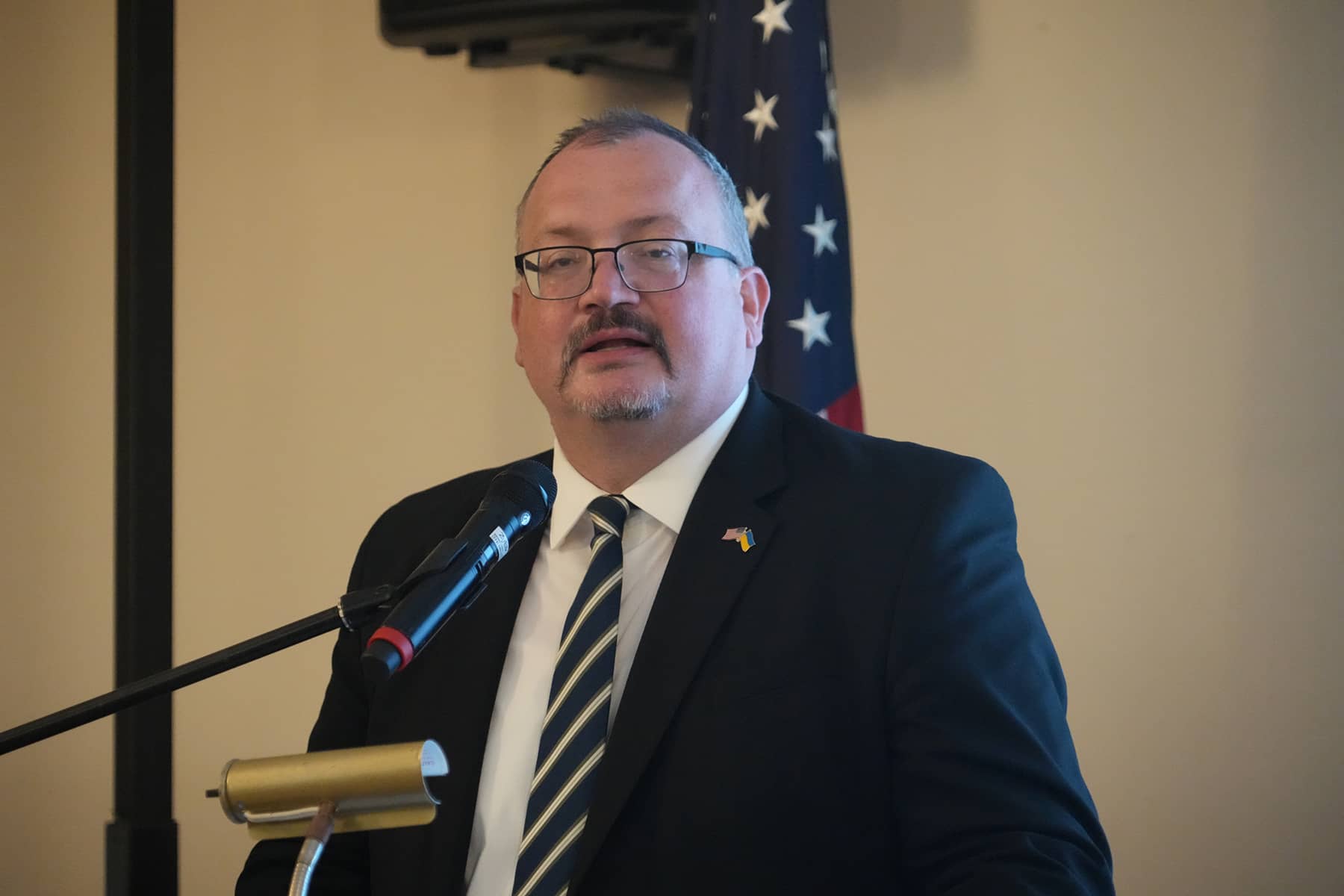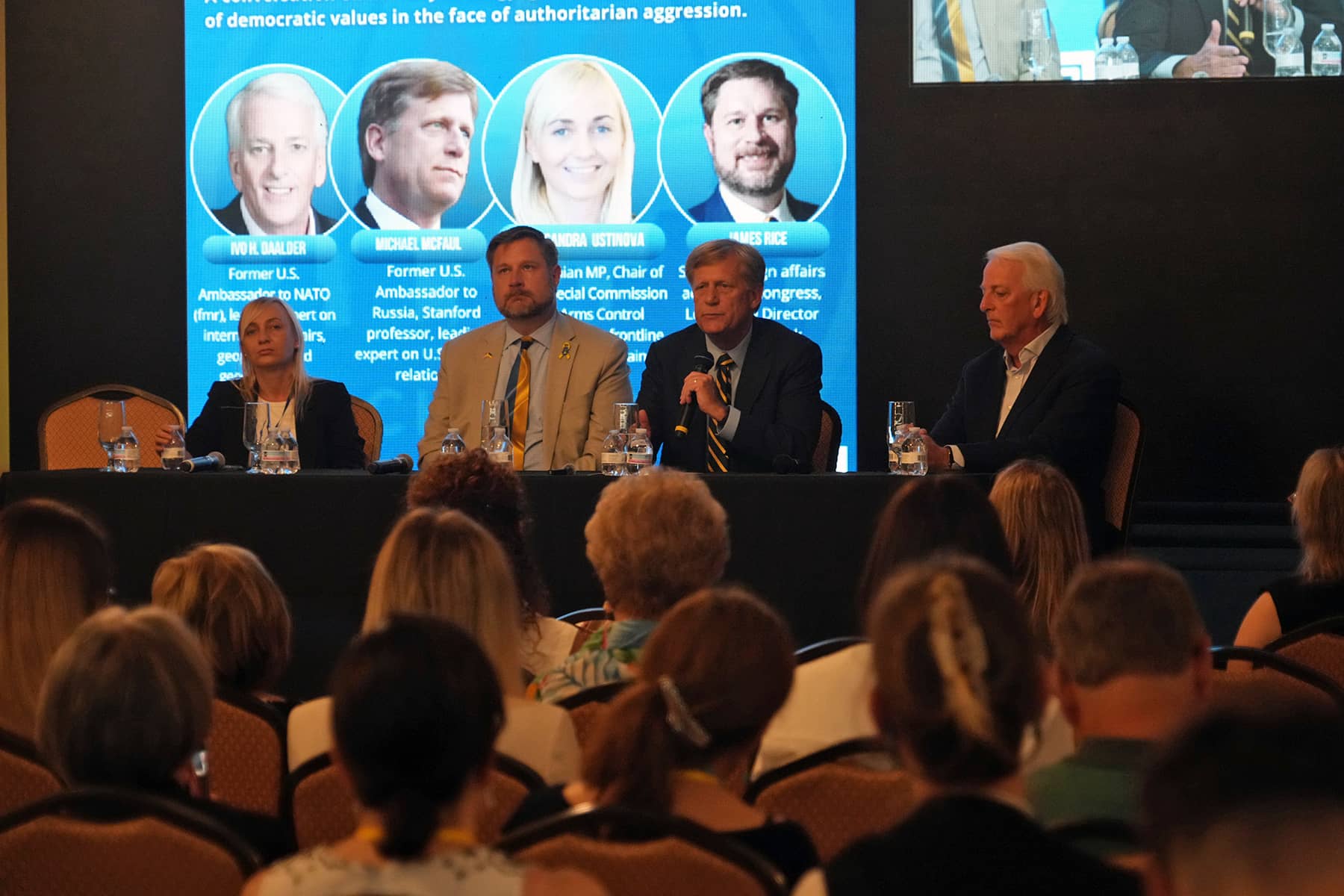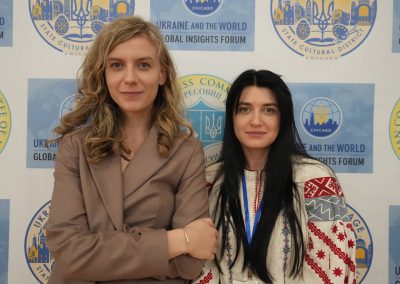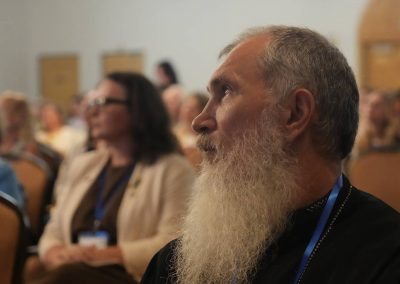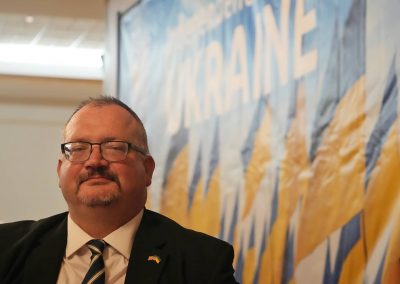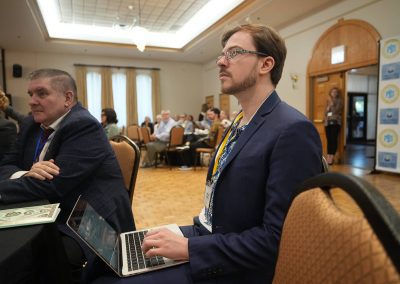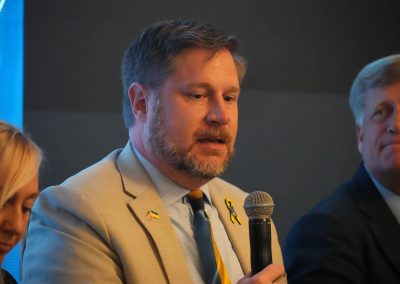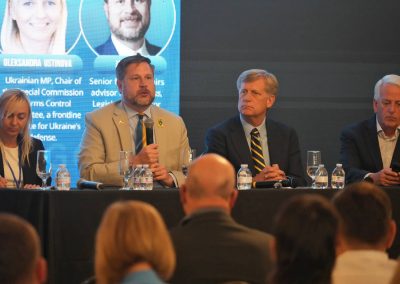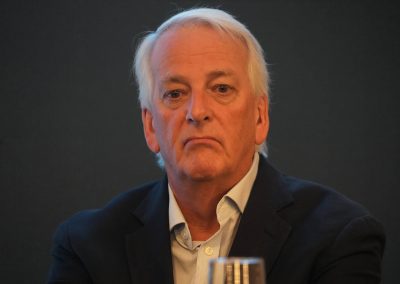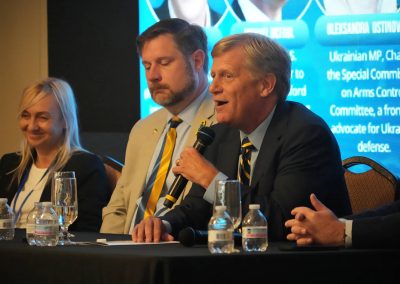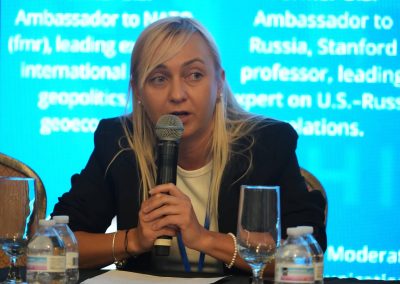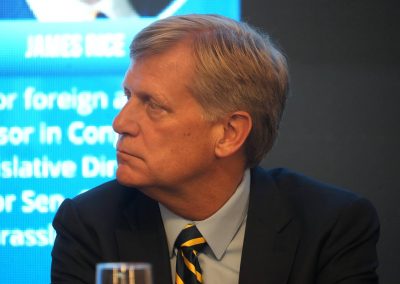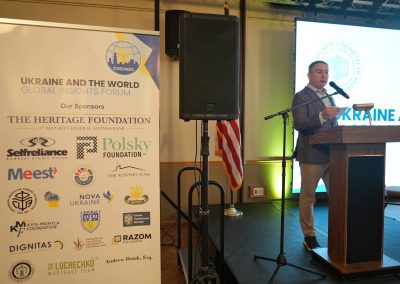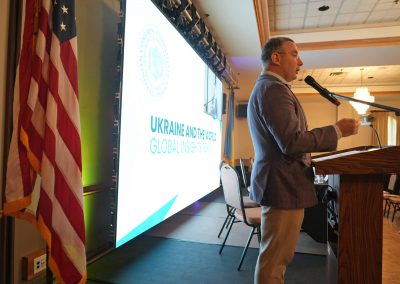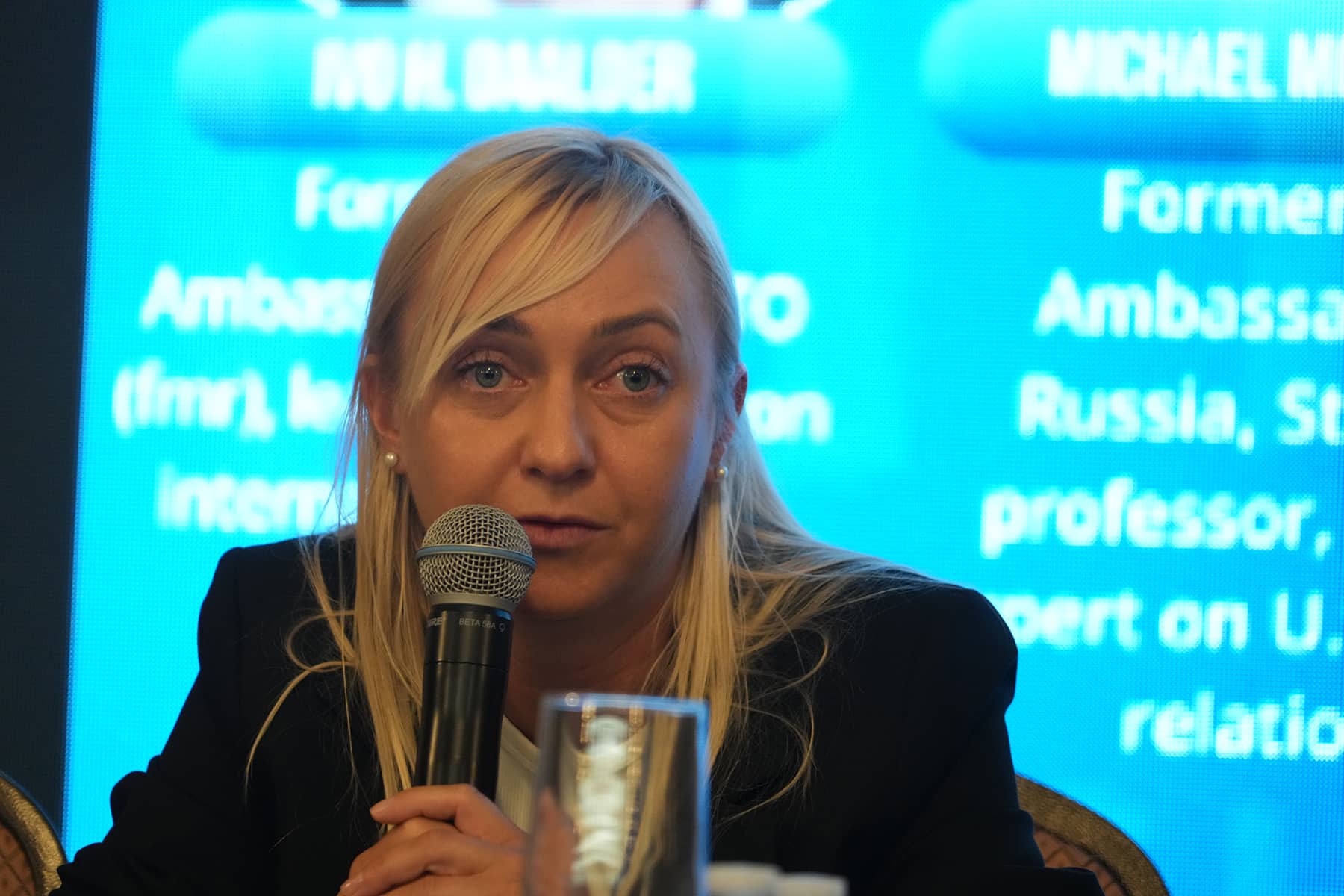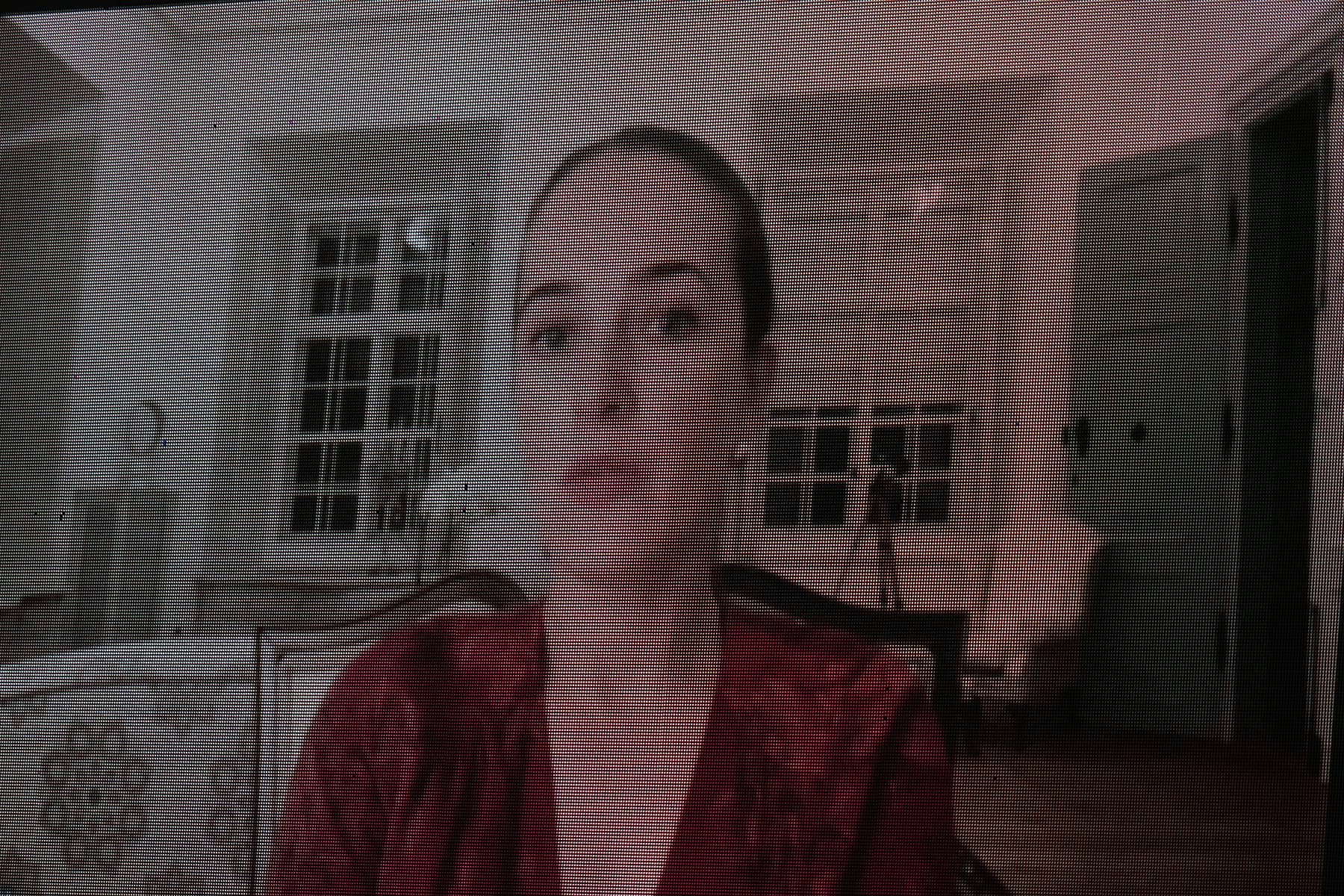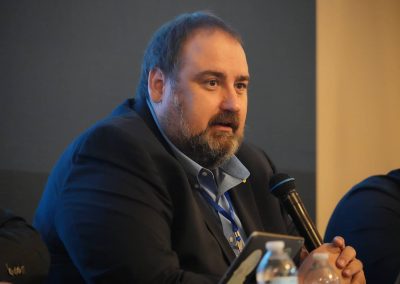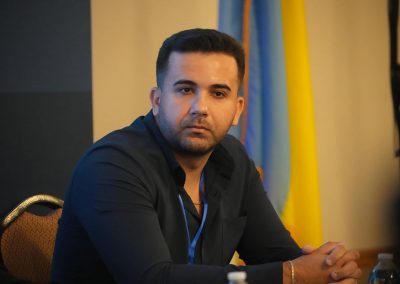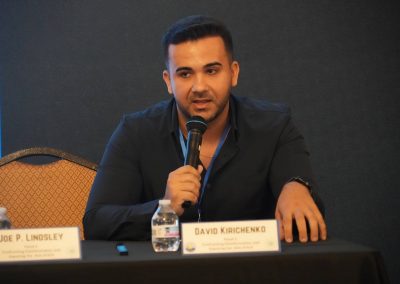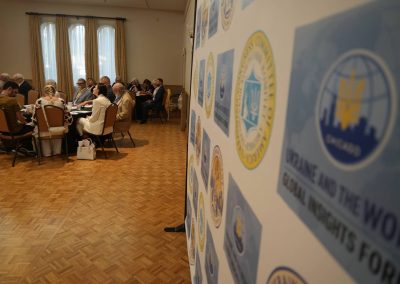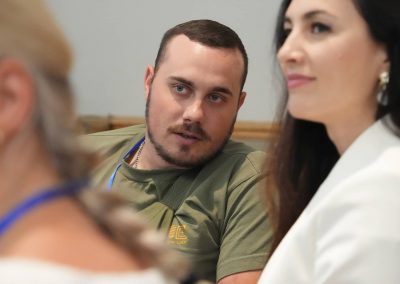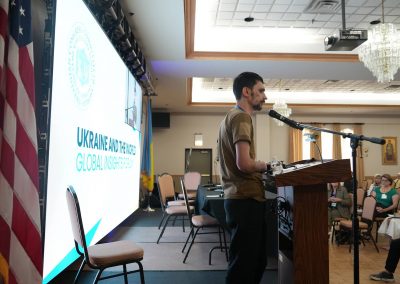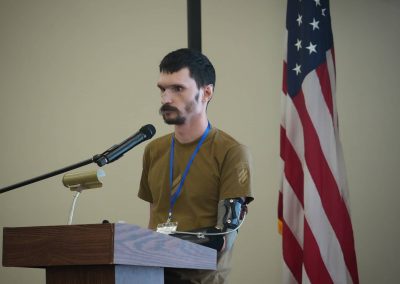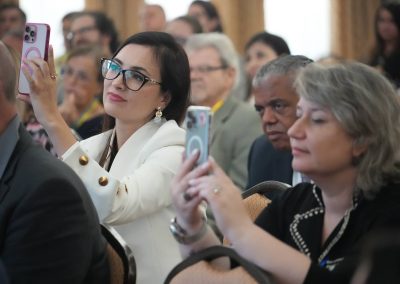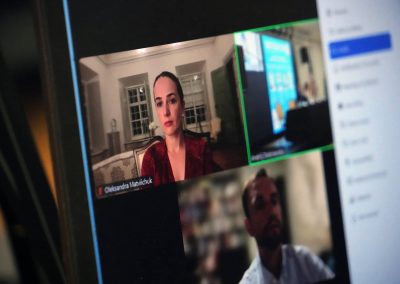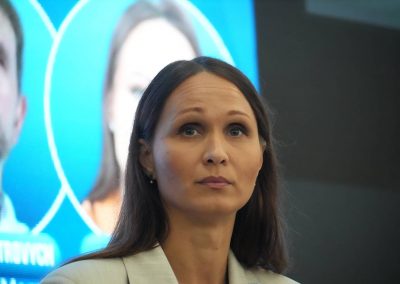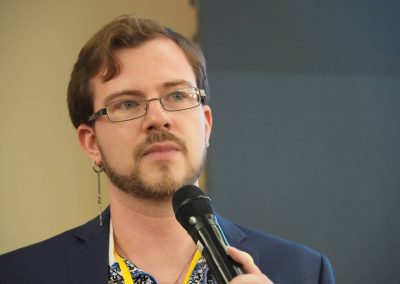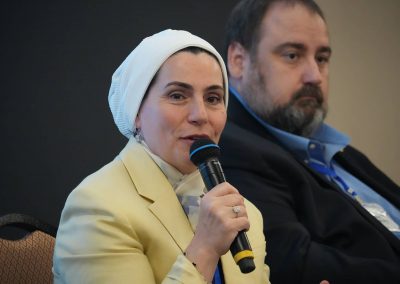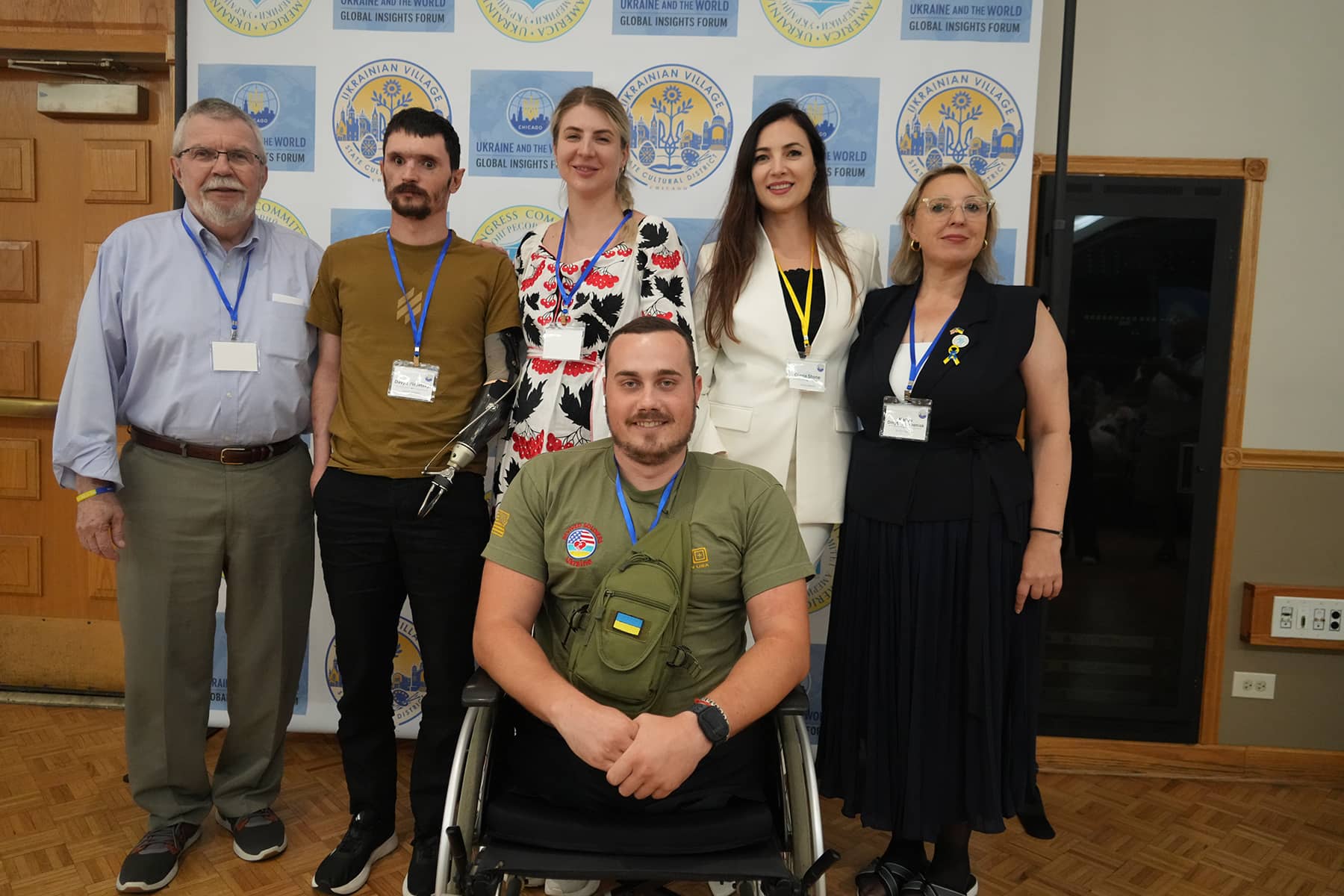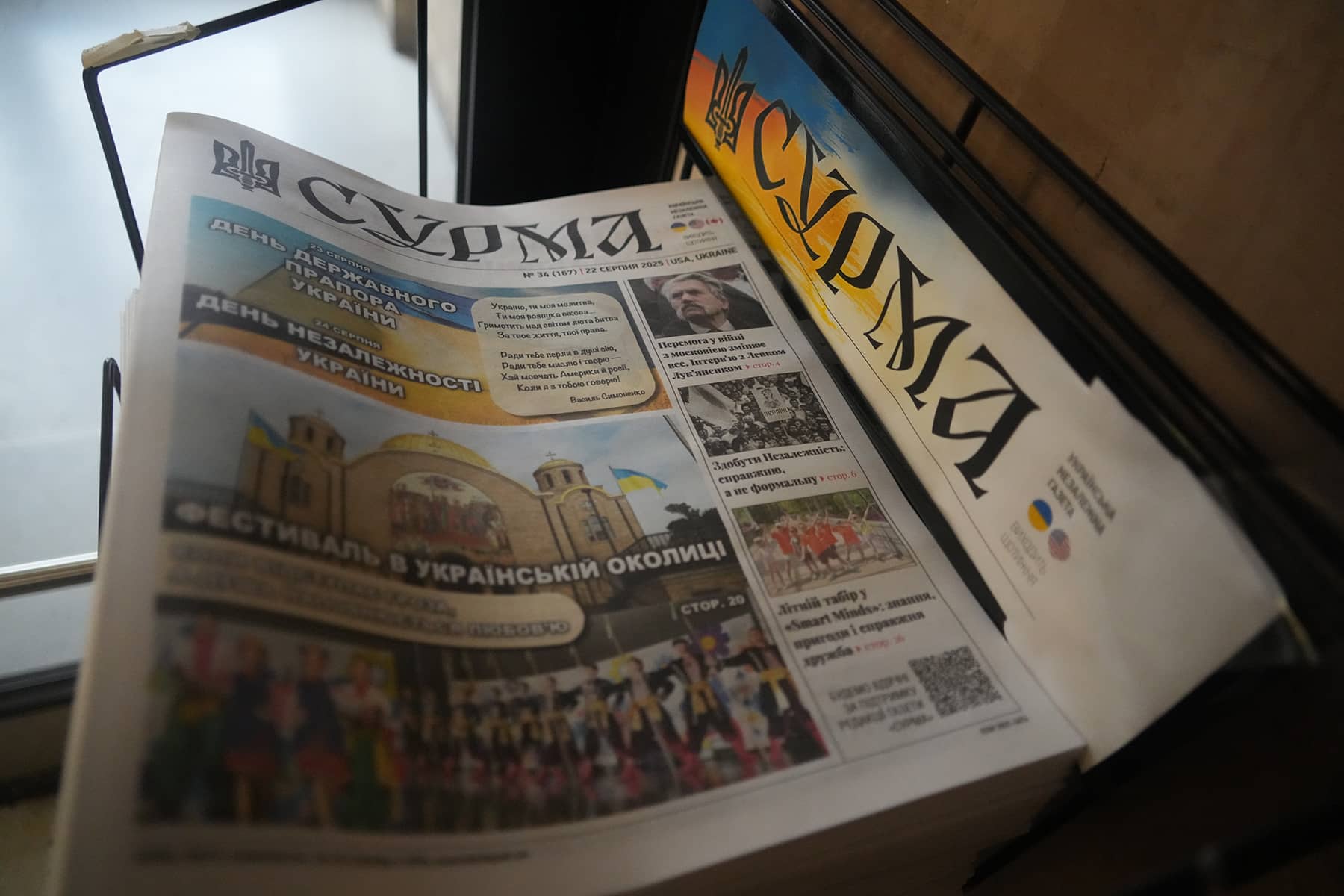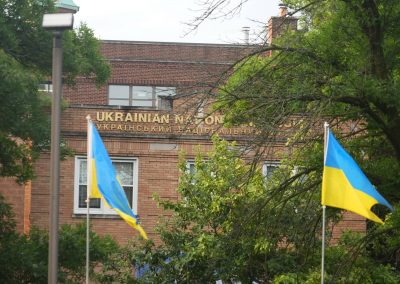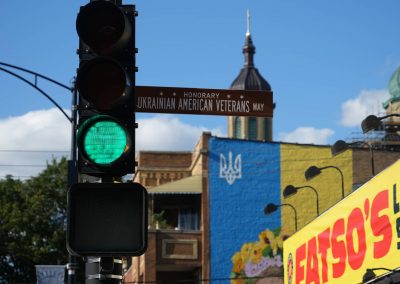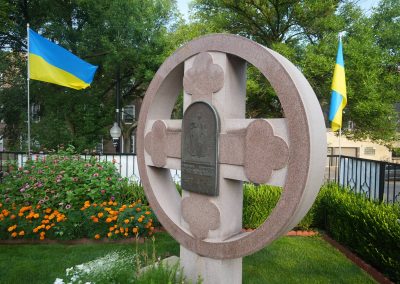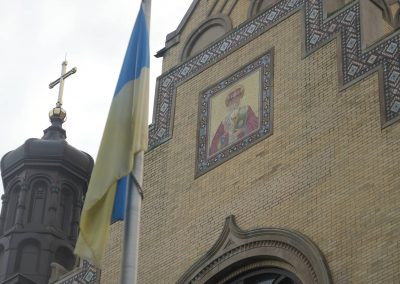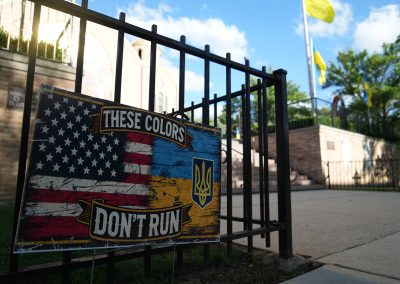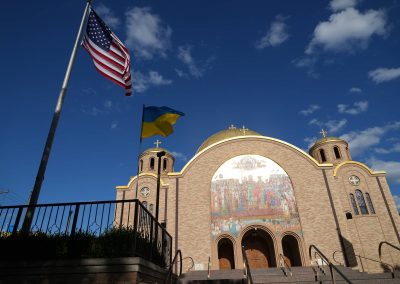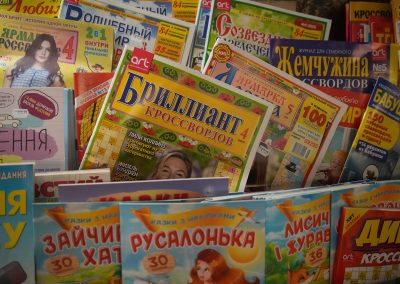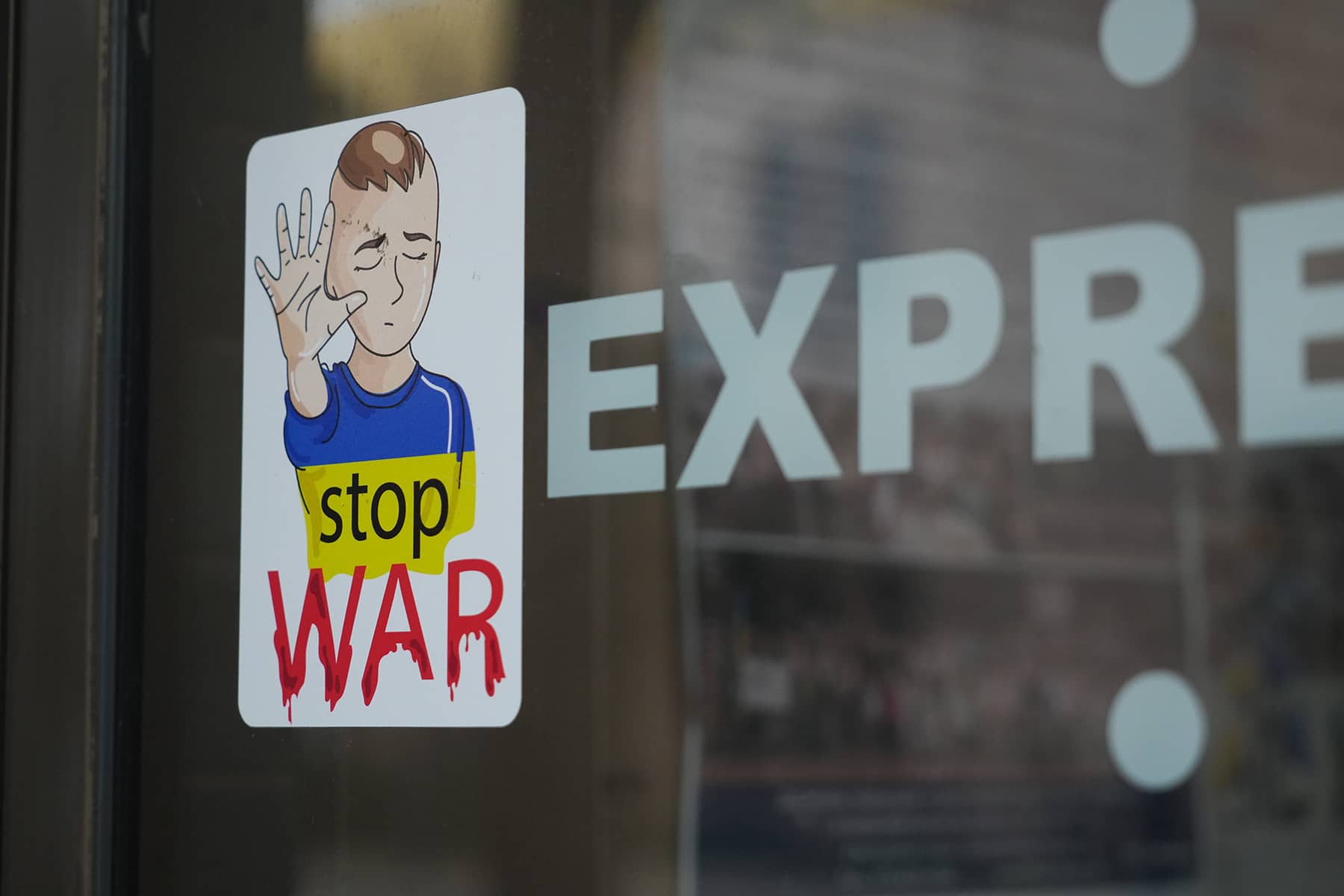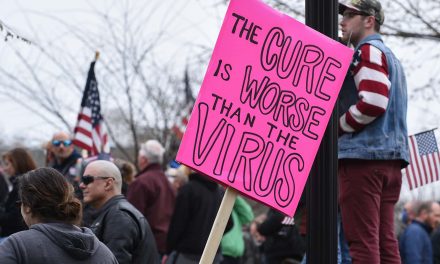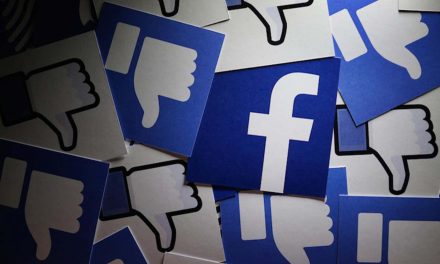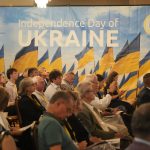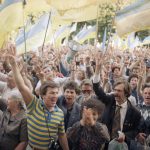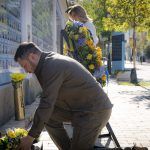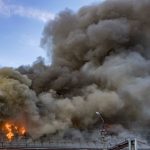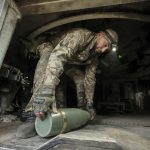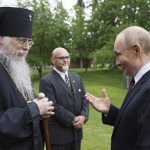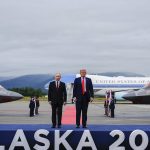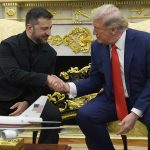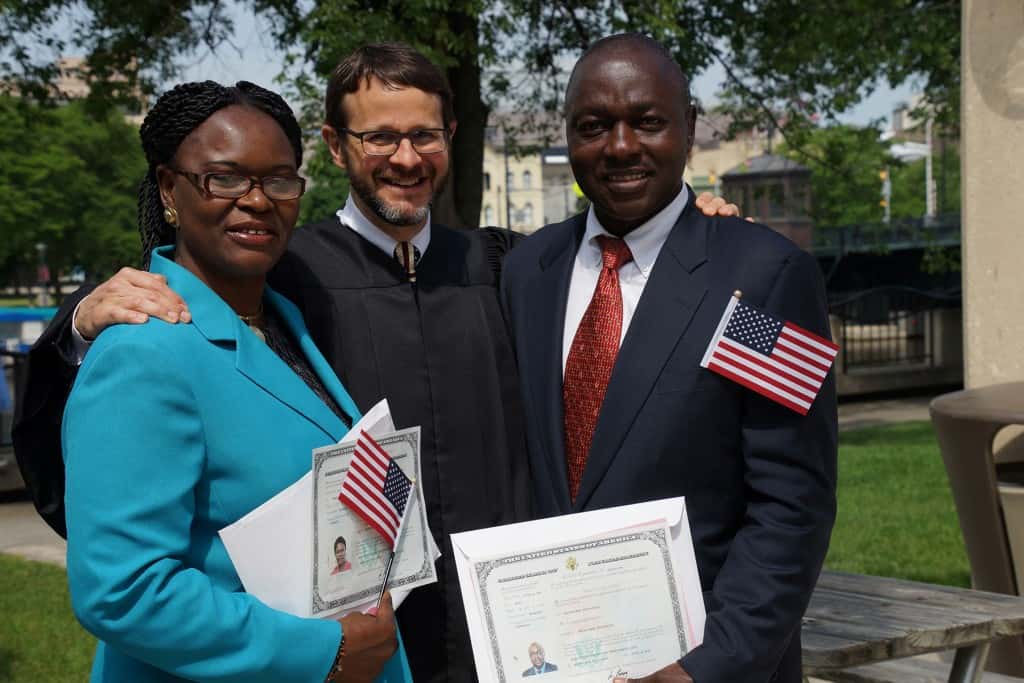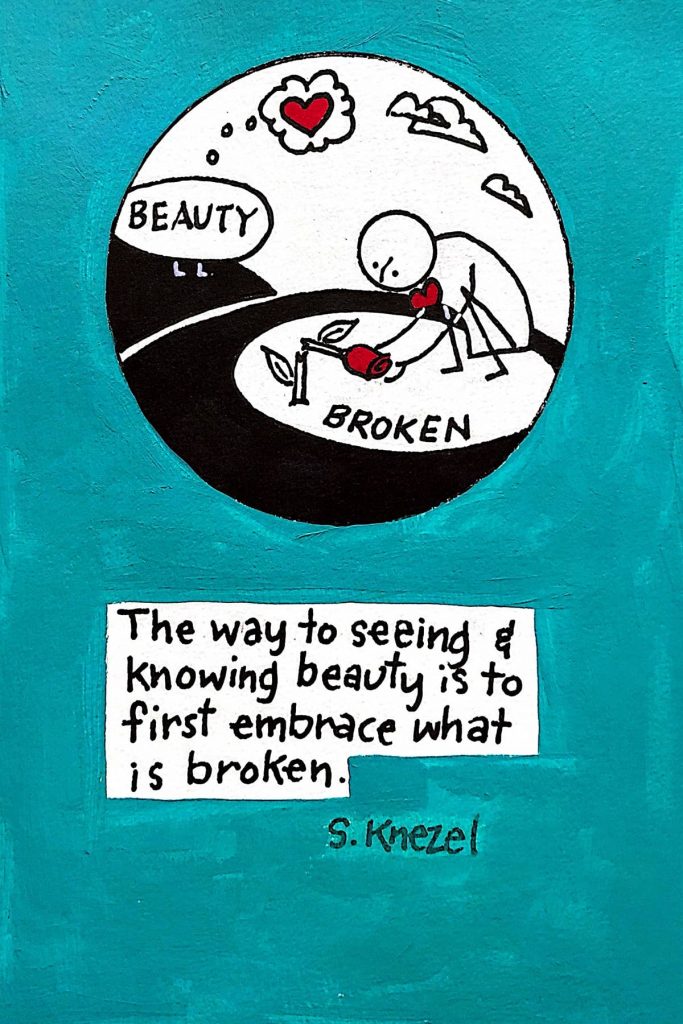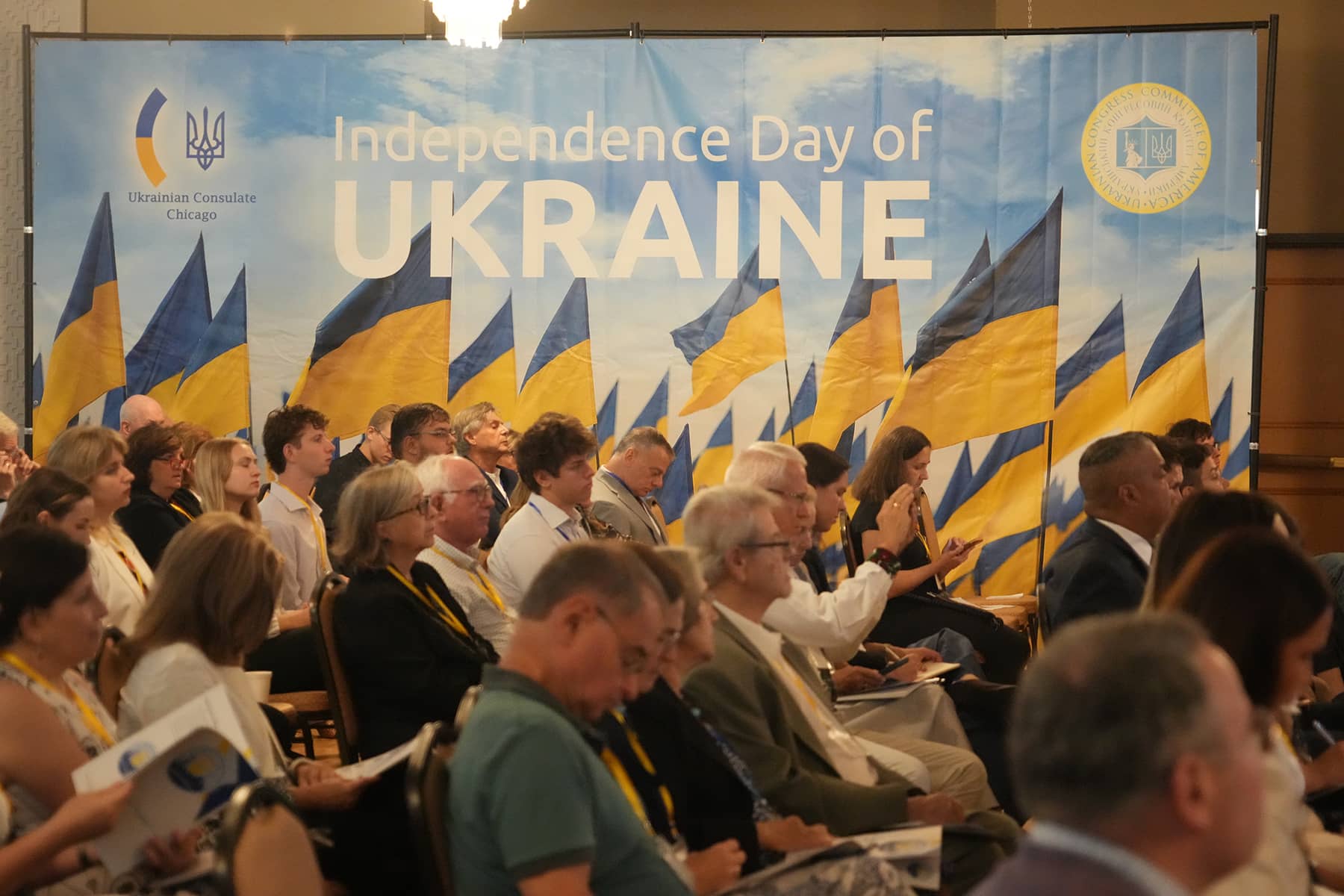
A high-level international forum held on August 23 at the Ukrainian Cultural Center in Chicago brought together leading foreign policy voices, elected officials, and civic delegations from across the United States.
The event was organized to reinforce public support for Ukraine as it marked its 34th year of independence under fire from a brutal aggressor. Those attending also included the leadership of Wisconsin Ukrainians Inc., and other notable representatives from Milwaukee’s Ukrainian community.
The event, titled “Ukraine and the World: Global Insights Forum,” was part of a broader slate of commemorations organized by the Ukrainian Congress Committee of America’s Illinois Division. It included a flag-raising at the Daley Center and a Mega March and Rally on August 24.
“Wars are started by dictators and thugs, but peace is won by freedom-loving people
through sacrifice, coalitions, and alliances,” said Mariya Dmytriv-Kapeniak, president of UCCA, IL. “We are deeply grateful to the American people for their unwavering support, and we remain hopeful for a just and lasting peace, worthy of the tremendous sacrifices being made.”
The panel discussions served as the forum’s intellectual and diplomatic core, offering an urgent reckoning with how the war in Ukraine has exposed global weaknesses in alliance, willpower, and justice.
The hall remained filled over the course of the day, as attendees listened to candid assessments from former diplomats, security officials, journalists, and Ukrainian leaders. Each called on the American public and the federal government to confront the costs of inaction.
Ivo Daalder, former U.S. Ambassador to NATO and current president of the Chicago Council on Global Affairs, delivered a pointed critique of the transatlantic alliance.
He argued that NATO had repeatedly failed Ukraine by refusing to offer membership when it had the chance, prioritizing accommodation of Russian threats over defense of democratic partners.
“Ukraine should and must become a member of NATO. If you read the NATO Treaty, which unfortunately not too many people do, Article 10 says that any European state can be invited to join the North Atlantic Treaty Organization if it adheres to the principles, and most importantly, if it contributes to the security of the North Atlantic area,” said Daalder.
He noted that in the last three and a half years, Ukraine has done more for the security of the North Atlantic region than any other country in the world. More than any of the 32 members of NATO, including the United States. He said the nation had done so at a great cost to itself that was immeasurable in terms of lives.
“We should not accept the analysis that led Joe Biden and Donald Trump to say that Ukraine should not be a member of NATO. We should not accept it. We should push back,” added Daalder.
According to Daalder, the alliance’s credibility now hinges on whether it will enforce its own stated principles. He said the logic that once guided NATO’s expansion had eroded under pressure from Moscow.
Instead of seizing the opportunity to bring Ukraine into the fold, especially after the 2008 Bucharest Summit, when the alliance first declared Ukraine would eventually join, member states allowed Russia to dictate terms through intimidation and invasion. He framed Ukraine’s current situation not as a surprise, but as a predictable result of years of appeasement.
Daalder stressed that the defense of democracy could not rely on slogans or selective outrage. He argued that global unity behind Ukraine must be grounded not only in shared interest but in shared values, and that those values were only credible when consistently applied.
Michael McFaul, former U.S. Ambassador to Russia and current Stanford professor, followed with a blistering review of American policy under Donald Trump. He noted that while previous administrations had slowly moved toward stronger Ukraine support, the Trump White House reversed course, imposing no new sanctions on Russia and effectively freezing military aid initiatives.
“Vladimir Putin cannot have a voice in this conversation. It is absurd,” said McFaul. “In 1949, nobody called the Kremlin to ask Stalin if he was okay with the creation of NATO. Nobody called Khrushchev in 1955 to ask if he was okay with West Germany joining NATO. Nobody called Moscow even in the 1990s to ask Boris Yeltsin if he would permit the expansion of NATO. So, why is the government now waiting for Putin’s permission?”
McFaul warned that America’s withdrawal from its responsibilities has sent a dangerous message to authoritarian regimes, signaling that the declining superpower was no longer committed to defending democratic allies.
He stated that restoring America’s credibility on the world stage would require not only resuming aid, but also making clear that foreign aggression would be met with unified resistance. He clarified that the issue of Ukraine joining NATO was just a smoke screen, and Putin was using it as a political ploy.
“The real threat that Putin faces from Ukraine is a free Ukraine, a democratic Ukraine, a prosperous Ukraine,” added McFaul. “It is not NATO expansion.”
Also among the panelists was James Rice, Senior foreign affairs advisor in Congress and Legislative Director for Senator Chuck Grassley (R-IA), who framed the conflict through a national security lens. He invoked the Reagan-era doctrine of “peace through strength,” arguing that Ukraine’s successful resistance had exposed both Russian vulnerabilities and Western complacency.
“I think we have a natural sympathy as Americans toward any country that’s fighting for freedom and independence against a big empire. So there’s nothing more American than supporting Ukraine, in my view,” said Rice. “The thing about Russia is that we keep relearning a lesson, that they only understand strength. Putin only understands strength. He’s a KGB guy, and that was true during the Soviet Union.”
Rice emphasized that aiding Ukraine was not an act of charity, but a strategic necessity. He pushed back against narratives that painted Ukraine as a distant or irrelevant conflict. Instead, he pointed to its role as a frontline state in the defense of Europe — and by extension, global stability. He warned that underfunding or delaying support would invite broader conflict, not avoid it.
But the most emotionally charged remarks came from Oleksandra Ustinova, a current member of Ukraine’s Parliament and defense committee. Speaking with visible frustration, she condemned the West’s inconsistent military deliveries and delays in air defense support. Ustinova said those lapses had directly resulted in civilian deaths and battlefield losses.
“We need to stop talking about Ukraine as a victim, and start talking about Ukraine as a success,” said Ustinova. “Why? Because each country is going to come to us later, like the Europeans are doing now, because we are the only ones who know how to fight the Russians, how to produce the drones, how to deploy the weapons needed to win.”
She also pushed back against characterizations of Ukraine as unstable or ungrateful. Ustinova highlighted the country’s domestic innovations in drone warfare, battlefield tactics, and self-defense logistics. She made it clear Ukraine was not asking others to fight its war, but it could not win without timely resources.
Ustinova described ongoing efforts in Ukraine’s Parliament to document war crimes and strengthen international partnerships in legal prosecution. She highlighted the need for a special tribunal to address aggression as a crime itself — not just its outcomes. Other speakers echoed this call, emphasizing that the absence of such mechanisms perpetuates a cycle of impunity.
Throughout the forum, panelists returned to a recurring theme: that Ukraine’s struggle is not just about national sovereignty, but about whether the rules-based international order that has kept global stability for eight decades still functions. Each panelist framed the war as a test case for democracy, and a warning of what happens when authoritarians believe there are no consequences.
U.S. Representative Eugene Vindman, who assumed office in January 2025 representing Virginia’s 7th Congressional District, visited the forum and addressed attendees, sharing his perspective on Ukraine’s ongoing struggle and the importance of U.S. legislative engagement.
Eugene is the twin brother of Alexander Vindman, a retired Army lieutenant colonel and former National Security Council director for European affairs, who testified during President Trump’s first impeachment. Alexander became a key witness regarding Trump’s July 2019 call with Ukrainian President Zelenskyy, highlighting what he described as a betrayal of U.S. policy and democratic norms.
Beyond geopolitical strategy and security policy, the forum’s speakers underscored the moral stakes of the war. Russia’s strategy to target civilians, documented abductions of children, and destruction of infrastructure were repeatedly cited as violations of international law demanding full accountability. Several panelists noted that justice cannot be deferred to the end of the war but must be pursued concurrently.
The forum also drew attention to disinformation campaigns undermining public understanding of the war. Speakers pointed to Russian propaganda efforts targeting U.S. and European audiences, using social media and state-backed networks to distort the narrative and fracture support. Attendees were urged to counter such efforts through civic engagement, media literacy, and direct communication with elected officials.
The day concluded with a sense of shared purpose. It was a sobering reminder that Ukraine’s fight was far from over, and its outcome would reverberate far beyond Eastern Europe. The forum participants made it clear that the defense of Ukraine was inseparable from the defense of democratic norms, human rights, and international law.
Whether those ideals can endure in the face of escalating authoritarianism and indifference from American leadership depends not only on military aid or policy statements, but on sustained civic vigilance and political will.
“We have shown that we can win this war. We have shown that we are not a black hole. We have shown that we are a success story,” added Ustinova. “And the only question now is, when will we be allowed to win?”
© Photo
Lee Matz

